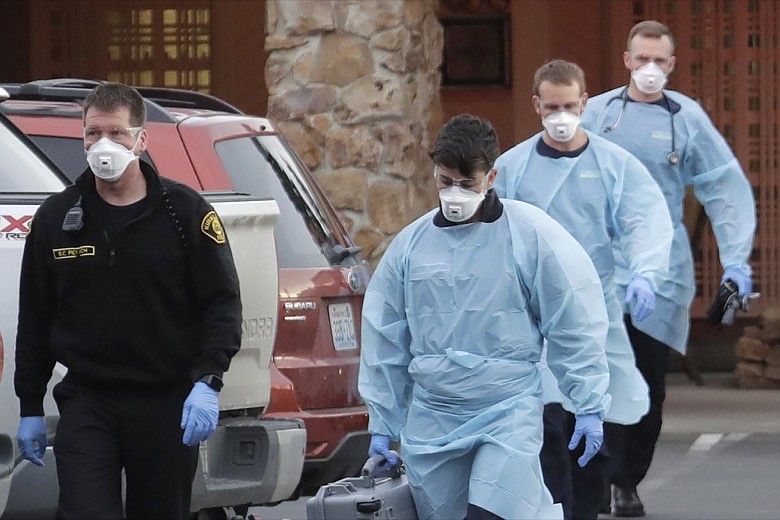SEATTLE -- Medical leaders in Washington state, which has the highest number of U.S. coronavirus deaths, have quietly begun preparing a bleak triage strategy to determine which patients may have to be denied complete medical care in the event that the health system becomes overwhelmed by the coronavirus in the coming weeks.
Fearing a critical shortage of supplies, including the ventilators needed to help the most seriously ill patients breathe, state officials and hospital leaders held a conference call Wednesday night to discuss the plans, according to several people involved in the talks. The triage document, still under consideration, will assess factors such as age, health and likelihood of survival in determining who will get access to full care and who will merely be provided comfort care, with the expectation that they will die.
The effort is statewide so individual doctors and hospitals will not be left to make such decisions, said Cassie Sauer, chief executive of the Washington State Hospital Association, one of the groups convening the call.
"It's protecting the clinicians so you don't have one person who's kind of playing God," she said, adding, "It is chilling, and it should not happen in America."
Sauer stressed that several things, including more hospital beds and equipment, could reduce the need to make such decisions.
"This country has resources," she said.
The state has been urgently seeking ventilators for patients and protective masks for health care workers, including from the Strategic National Stockpile, a repository of critical medical supplies for public health emergencies. Officials have also been looking to have the U.S. Navy hospital ship Mercy, which has 80 intensive care beds, dock near Seattle to handle seriously ill patients other than those who have contracted COVID-19, the disease caused by the virus.
In the meantime, officials in King County have begun building a field hospital on a soccer field north of Seattle. One large hospital system based in the area has started making masks and face shields by hand. Hospitals have already postponed elective surgeries to preserve resources.
Dr. Chris Spitters, the interim health officer for the Snohomish Health District, where the nation's first coronavirus case was diagnosed, was part of the group that discussed the rationing proposals this week. He said that while the crisis strategies were not something anyone wants to anticipate, it would be worse not to be ready in the event they were needed.
"I would love to learn a month from now that the social distancing measures we adopted did indeed curb the outbreak enough to avoid going into that crisis zone of activity," Spitters said. "But that would be poor planning -- to simply hope."
Spitters said hospitals are also strategizing how to repurpose space, staff members and resources to help deal with an expected surge in patients.
Those involved in the discussions said the goal for developing criteria for prioritizing care is to provide fair and evenly applied practices across the region and eliminate the possibility that the care a patient receives might depend on which hospital he or she goes to. They said they also hope to avoid placing the responsibility and anguish of denying lifesaving aid on any individual doctor or nurse.
"They look at the criteria -- in this case it would likely be age and underlying disease conditions -- and then determine that this person, though this person has a chance of survival with a ventilator, does not get one," Sauer said.
"This is a shift to caring for the population, where you look at the whole population of people who need care and make a determination about who is most likely to survive, and you provide care to them," she said. "Those that have a less good chance of survival -- but still have a chance -- you do not provide care to them, which guarantees their death."
In Washington state, the crisis care planning is being led by the Northwest Healthcare Response Network, a coalition of hospitals assembled to handle disaster response, in conjunction with the Washington State Department of Health.
The group pulls on expertise in many disciplines, including specialists in pulmonary care, emergency medicine, infectious diseases, pediatrics and medical ethics.
"Now we are getting down to the point of how you would deploy it, when would you deploy it, who needs to know about it," said Dr. Cameron Buck, president of the Washington chapter of the American College of Emergency Physicians.
